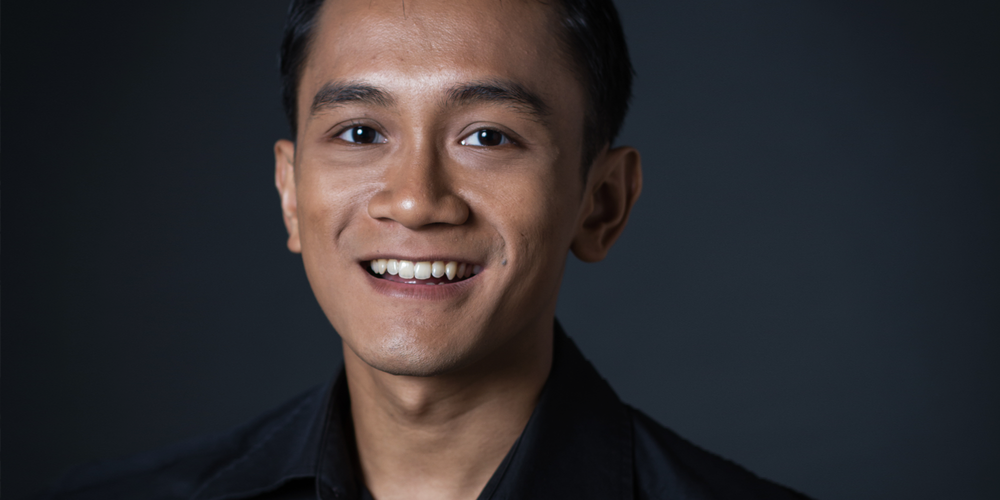
Yazid’s professional theatre experience began long before joining Intercultural Theatre Institute. An alumnus of Singapore Repertory Theatre’s youth wing, the SRT Young Company, Yazid has also worked as an actor with Singapore theatre companies such as Teater Ekamatra, BUDS Theatre Company, Cake Theatrical Productions, Agni Koothu, We Colour People Theatre Company and Yellow Chair Productions.
Yazid was nominated Best Supporting Actor at the 11th Life! Theatre Awards (2011) for his role in Teater Ekamatra’s production of Charged. He also has a Best Performance nomination at the 3rd Singapore Short Film Awards (2012) for his leading role in Love In Any Genre. More recent is his and fellow co-actors’ nomination in the 13th Life! Theatre Awards (2013) for Best Ensemble for Pretty Things (Pat Toh/Substation). Yazid was last seen in The Malay Man and His Chinese Father, a physical theatre piece which is part of the M1 Singapore Fringe Festival 2015.
In 2011, Yazid pursued theatre training in France at the Ecole Philippe Gaulier as an awardee of the Singapore National Arts Council Residency Programme. Yazid also holds a diploma in Communications and Media Management from Temasek Polytechnic, where he specialised in English journalism. Yazid is a recipient of the NAC-ITI Arts Scholarship and has a scholarship from the Tan Chay Bing Education Fund.
Q: What is it like to study here in ITI?
It’s like being in an inter-galactic Star Wars cantina. There are so many different things to taste and look at – interesting things but not necessarily all pleasant. What I mean is: training is hard; but it has always been my belief that if it’s easy, you’re not learning anything new. So, in the end, all is good. Actually, I applied to ITI knowing how difficult the training would be, prepared myself for it and still found that it was difficult. So a word to future applicants: if you think you know what you’re getting into, think again! Attrition rate is high. You wont know when the actor next to you will quit. And when they do, you grieve and move on. “The show must go on” … as the saying goes.
Q: Tell us a little about learning the traditional art forms.
Learning a traditional art form, even at its most basic level, requires the deepest commitment and the highest discipline. The amazing masters whom I believe are the best at what they do, demand the best of the students. I am unaware of this myself, but I was told that after studying four different traditional art forms, my body changed. No, I didn’t grow extra limbs or received levitating abilities or stuff like that. But that, quality-wise, I changed.
I am unaware of this myself, but I was told that after studying four different traditional art forms, my body changed. No, I didn’t grow extra limbs or received levitating abilities or stuff like that. But that, quality-wise, I changed.
Perhaps due to a broader understanding of different cultural aesthetics and appreciation, the sharpening of the mind plays a huge part in the development of the body, I think. However I have to stress that the traditional art forms are not the only major thing in ITI. There are so many other “Western” forms that play a huge factor in the actor development. At the end of the day, students don’t graduate to be Noh actors or Chinese Opera Actors. If you want to be a Yogi or a martial arts master, this is not the school for you. ITI offers a Diploma in Acting, and I hope it stays that way. My point is, at the end of the day, students need to find his or her own way to apply whatever they have learnt in their contemporary work. There are a 1,001 ways for students to do that, depending on how hardworking they are.
Q: How has ITI shaped your identity as an actor?
One can learn acting from many schools. In Singapore alone, we have a handful of drama/acting schools. I think what will define me as an ITI graduate, is a sense of openness to different ways of seeing things and different ways of working. Just through ITI classes alone, I have learnt to speak/sing/perform in over 18 languages.
I think what will define me as an ITI graduate, is a sense of openness to different ways of seeing things and different ways of working.
Also, I would identify myself as an actor who is not afraid to fail and fail again. Failing is a concept that is introduced to us very early in the course and very aptly so, may I add. If I wasn’t a risk taker before ITI, I definitely am now. Some people call me “Kamikaze Yazid”. And that’s not because I’m a one-hit wonder…
Q: What has been the most rewarding experience that you will take away from your training here?
Meeting incredible master teachers who are just so giving. A school cannot be a good school without good teachers. At ITI, we have the best of teachers from all over the world. Life-changing individuals who, surprisingly, are all kind. Also, special mention to my classmates: I have never been in a “threesome” company before. Given our numbers, we learnt to be resourceful and effective. It had been one heck of a journey, but we stood our ground and gave the finger to fate.
Q: What do you look forward to most about graduation and what’s next?
Q: Do you have any advice for other actors?
Get training; any kind of training, but get training. Talent is all welll and good, but shaping it requires technical knowledge and guidance. And treasure the fellow theatre-makers you are collaborating with. If you can’t get along with people of different wavelengths, learn to. Or don’t do theatre.
Photo by Bernie Ng.